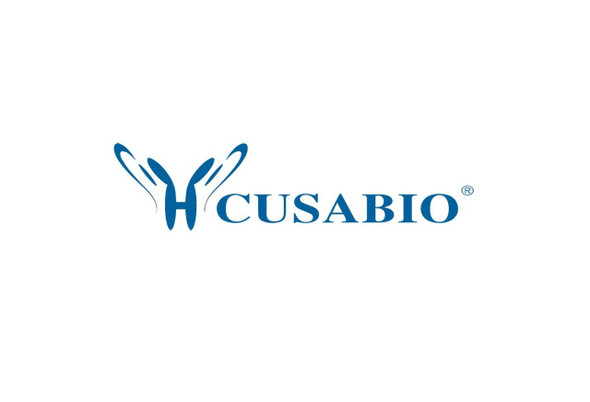Cusabio Human Recombinants
Recombinant Human Acetylcholine receptor subunit alpha (CHRNA1), partial | CSB-EP005386HU
- SKU:
- CSB-EP005386HU
- Availability:
- 3 - 7 Working Days
Description
Recombinant Human Acetylcholine receptor subunit alpha (CHRNA1), partial | CSB-EP005386HU | Cusabio
Alternative Name(s): Acetylcholine receptor subunit alpha; ACHA_HUMAN; AChR; ACHRA; ACHRD; CHNRA; Cholinergic receptor nicotinic alpha 1 subunit; Cholinergic receptor nicotinic alpha polypeptide 1; Cholinergic receptor; nicotinic; alpha polypeptide 1 (muscle); Chrna1; CMS1A; CMS1B; CMS2A; FCCMS; Nicotinic cholinergic receptor alpha 1; SCCMS; Schizophrenia neurophysiologic defect candidate
Gene Names: CHRNA1
Research Areas: Transport
Organism: Homo sapiens (Human)
AA Sequence: SEHETRLVAKLFKDYSSVVRPVEDHRQVVEVTVGLQLIQLINVDEVNQIVTTNVRLKQGDMVDLPRPSCVTLGVPLFSHLQNEQWVDYNLKWNPDDYGGVKKIHIPSEKIWRPDLVLYNNADGDFAIVKFTKVLLQYTGHITWTPPAIFKSYCEIIVTHFPFDEQNCSMKLGTWTYDGSVVAINPESDQPDLSNFMESGEWVIKESRGWKHSVTYSCCPDTPYLDITYHFVMQRL
Source: E.coli
Tag Info: N-terminal 6xHis-tagged
Expression Region: 21-255aa
Sequence Info: Partial
MW: 31.1 kDa
Purity: Greater than 90% as determined by SDS-PAGE.
Relevance: After binding acetylcholine, the AChR responds by an extensive change in conformation that affects all subunits and leads to opening of an ion-conducting channel across the plasma mbrane.
Reference: Complete sequencing and characterization of 21,243 full-length human cDNAs.Ota T., Suzuki Y., Nishikawa T., Otsuki T., Sugiyama T., Irie R., Wakamatsu A., Hayashi K., Sato H., Nagai K., Kimura K., Makita H., Sekine M., Obayashi M., Nishi T., Shibahara T., Tanaka T., Ishii S. , Yamamoto J., Saito K., Kawai Y., Isono Y., Nakamura Y., Nagahari K., Murakami K., Yasuda T., Iwayanagi T., Wagatsuma M., Shiratori A., Sudo H., Hosoiri T., Kaku Y., Kodaira H., Kondo H., Sugawara M., Takahashi M., Kanda K., Yokoi T., Furuya T., Kikkawa E., Omura Y., Abe K., Kamihara K., Katsuta N., Sato K., Tanikawa M., Yamazaki M., Ninomiya K., Ishibashi T., Yamashita H., Murakawa K., Fujimori K., Tanai H., Kimata M., Watanabe M., Hiraoka S., Chiba Y., Ishida S., Ono Y., Takiguchi S., Watanabe S., Yosida M., Hotuta T., Kusano J., Kanehori K., Takahashi-Fujii A., Hara H., Tanase T.-O., Nomura Y., Togiya S., Komai F., Hara R., Takeuchi K., Arita M., Imose N., Musashino K., Yuuki H., Oshima A., Sasaki N., Aotsuka S., Yoshikawa Y., Matsunawa H., Ichihara T., Shiohata N., Sano S., Moriya S., Momiyama H., Satoh N., Takami S., Terashima Y., Suzuki O., Nakagawa S., Senoh A., Mizoguchi H., Goto Y., Shimizu F., Wakebe H., Hishigaki H., Watanabe T., Sugiyama A., Takemoto M., Kawakami B., Yamazaki M., Watanabe K., Kumagai A., Itakura S., Fukuzumi Y., Fujimori Y., Komiyama M., Tashiro H., Tanigami A., Fujiwara T., Ono T., Yamada K., Fujii Y., Ozaki K., Hirao M., Ohmori Y., Kawabata A., Hikiji T., Kobatake N., Inagaki H., Ikema Y., Okamoto S., Okitani R., Kawakami T., Noguchi S., Itoh T., Shigeta K., Senba T., Matsumura K., Nakajima Y., Mizuno T., Morinaga M., Sasaki M., Togashi T., Oyama M., Hata H., Watanabe M., Komatsu T., Mizushima-Sugano J., Satoh T., Shirai Y., Takahashi Y., Nakagawa K., Okumura K., Nagase T., Nomura N., Kikuchi H., Masuho Y., Yamashita R., Nakai K., Yada T., Nakamura Y., Ohara O., Isogai T., Sugano S.Nat. Genet. 36:40-45(2004)
Storage: The shelf life is related to many factors, storage state, buffer ingredients, storage temperature and the stability of the protein itself. Generally, the shelf life of liquid form is 6 months at -20?/-80?. The shelf life of lyophilized form is 12 months at -20?/-80?.
Notes: Repeated freezing and thawing is not recommended. Store working aliquots at 4? for up to one week.
Function: After binding acetylcholine, the AChR responds by an extensive change in conformation that affects all subunits and leads to opening of an ion-conducting channel across the plasma membrane.
Involvement in disease: Multiple pterygium syndrome, lethal type (LMPS); Myasthenic syndrome, congenital, 1A, slow-channel (CMS1A); Myasthenic syndrome, congenital, 1B, fast-channel (CMS1B)
Subcellular Location: Cell junction, synapse, postsynaptic cell membrane, Multi-pass membrane protein, Cell membrane, Multi-pass membrane protein
Protein Families: Ligand-gated ion channel (TC 1.A.9) family, Acetylcholine receptor (TC 1.A.9.1) subfamily, Alpha-1/CHRNA1 sub-subfamily
Tissue Specificity: Isoform 1 is only expressed in skeletal muscle. Isoform 2 is constitutively expressed in skeletal muscle, brain, heart, kidney, liver, lung and thymus.
Paythway:
Form: Liquid or Lyophilized powder
Buffer: If the delivery form is liquid, the default storage buffer is Tris/PBS-based buffer, 5%-50% glycerol. If the delivery form is lyophilized powder, the buffer before lyophilization is Tris/PBS-based buffer, 6% Trehalose, pH 8.0.
Reconstitution: We recommend that this vial be briefly centrifuged prior to opening to bring the contents to the bottom. Please reconstitute protein in deionized sterile water to a concentration of 0.1-1.0 mg/mL.We recommend to add 5-50% of glycerol (final concentration) and aliquot for long-term storage at -20?/-80?. Our default final concentration of glycerol is 50%. Customers could use it as reference.
Uniprot ID: P02708
HGNC Database Link: HGNC
UniGene Database Link: UniGene
KEGG Database Link: KEGG
STRING Database Link: STRING
OMIM Database Link: OMIM









